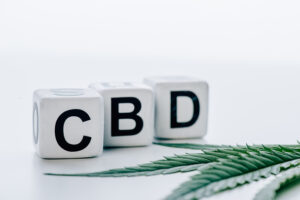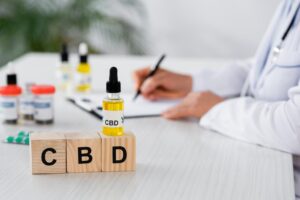CBD for Horses: Exploring the Potential Benefits and Considerations
In recent years, there has been a growing interest in the use of CBD (cannabidiol) as a natural supplement for various health concerns in humans. However, the potential benefits of CBD are not limited to humans alone. Horses, as well as other animals, can also potentially benefit from CBD’s therapeutic properties.

This article aims to explore the potential benefits and considerations of using CBD for horses.
Understanding CBD
CBD is a naturally occurring compound found in the cannabis plant. Unlike its well-known counterpart THC (tetrahydrocannabinol), CBD does not produce psychoactive effects, meaning it does not make the user “high.” CBD interacts with the endocannabinoid system (ECS) in humans and animals, which helps regulate various physiological processes, including pain perception, inflammation, mood, and immune response.
Potential Benefits for Horses
- Pain Relief: Horses, like any other animals, can suffer from chronic pain caused by arthritis, laminitis, or injuries. CBD has shown promise in managing pain by interacting with receptors in the ECS and reducing inflammation. It may provide a natural alternative or complement to traditional pain management methods.
- Anxiety and Stress Reduction: Horses can experience anxiety and stress due to various factors, such as separation anxiety, travel, or unfamiliar environments. CBD has shown the potential to reduce anxiety by modulating serotonin receptors in the brain, promoting a sense of calm and relaxation. This can be particularly beneficial during training, competitions, or high-stress situations.
- Anti-Inflammatory Effects: Inflammation is a common issue for horses, especially in joints and soft tissues. CBD’s anti-inflammatory properties may help reduce swelling, pain, and discomfort associated with conditions like osteoarthritis or tendonitis. By targeting inflammatory pathways, CBD may assist in managing these conditions and improving the overall well-being of horses.
- Digestive Health: Horses can suffer from gastrointestinal issues such as colic, ulcers, or diarrhea, which can be caused by stress, diet changes, or other factors. CBD may help regulate the digestive system by interacting with receptors in the gut, potentially reducing inflammation and improving gut motility. However, it’s essential to consult with a veterinarian to determine the appropriate dosage and usage for specific digestive issues.
- Immune Support: CBD has been found to have immunomodulatory properties, meaning it can help regulate and support the immune system’s function. By modulating the immune response, CBD may assist horses in combating infections, allergies, and autoimmune conditions. It’s important to note that further research is needed in this area to fully understand the extent of CBD’s impact on the equine immune system.

Considerations for Using CBD in Horses
While CBD holds promise as a natural supplement for horses, it’s crucial to approach its usage with care and consideration:
- Quality and Safety: When choosing CBD products for horses, it’s essential to ensure their quality, purity, and safety. Look for products derived from organic hemp, extracted using clean methods, and tested by third-party laboratories for potency and contaminants.
- Dosage and Administration: Determining the appropriate CBD dosage for horses can be challenging, as there is no standardized guideline. It’s recommended to start with a low dose and gradually increase it while monitoring the horse’s response. Consult with a veterinarian experienced in CBD use for horses to determine the optimal dosage and administration method.
- Drug Interactions: CBD can potentially interact with certain medications, particularly those metabolized by the liver’s cytochrome P450 enzymes. Inform your veterinarian about any medications or supplements your horse is currently taking to avoid potential interactions.
Learn more at Wiki as well.




